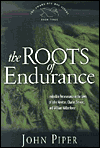 "If your heart is full of love, it will find vent."
"If your heart is full of love, it will find vent.""When a fountain abounds in water, it will send forth streams."
Jonathan Edwards
Commenting on Jonathan Edwards' sermons on 1 Corinthians 13:1-10, Hughes Oliphant Old, a preeminent scholar in the history of preachers and preaching, once remarked that "having read through the whole history of Christian preaching . . . I realize that it is one of the classics." These sermons are still in print under the title, "Charity and Its Fruits" (Banner of Truth). Edwards preached this series of expository sermons to his congregation in Northampton in the late 1730s.
Love is our most mature act as human beings. For the next few weeks we will follow in Edwards footsteps as he leads us through 1 Corinthians 13:1-10. In keeping with our summer theme, "A Life Well Lived," we will focus on his specific applications of this passage. These sermons are refreshingly "un-sentimental" but theologically astute and highly practical.
From Lecture One: "Charity, or Love, the Sum of all Virtue"
"And doubtless the apostle means the same thing by charity in this thirteenth chapter, that he does in the eighth, for he is here comparing the same two things together that he was there, viz. knowledge and charity. 'Though I have all knowledge, and have not charity, I am nothing;' and again, 'charity never faileth, but knowledge, it shall vanish away.' So that by charity here, we are doubtless to understand Christian love in its full extent, whether it be exercised towards God or our fellow creatures."
"If love is so great a thing in Christianity, so essential and distinguishing, yea, the very sum of all Christian virtue, then surely those that profess themselves Christians should live in love, and abound in the works of love, for no works are so becoming as those of love. "
"If you call yourself a Christian, where are your works of love? Have you abounded, and do you abound in them? If this divine and holy principle is in you, and reigns in you, will it not appear in your life in works of love? Consider, what deeds of love have you done? Do you love God? What have you done for him, for his glory, for the advancement of his kingdom in the world? And how much have you denied yourself to promote the Redeemer’s interest among men? Do you love your fellowmen? What have you done for them? Consider your former defects in these respects, and how becoming it is in you, as a Christian, hereafter to abound more in deeds of love. Do not make excuse that you have not opportunities to do anything for the glory of God, for the interest of the Redeemer’s kingdom, and for the spiritual benefit of your neighbors."
"If your heart is full of love, it will find vent; you will find or make ways enough to express your love in deeds. When a fountain abounds in water, it will send forth streams. Consider that as a principle of love is the main principle in the heart of a real Christian, so the labor of love is the main business of the Christian life. Let every Christian consider these things; and may the Lord give you understanding in all things, and make you sensible what spirit it becomes you to be of, and dispose you to such an excellent, amiable, and benevolent life, as is answerable to such a spirit, that you may not love only 'in word and tongue, but in deed and in truth.'"
So, how do you "vent"?
Read more...













